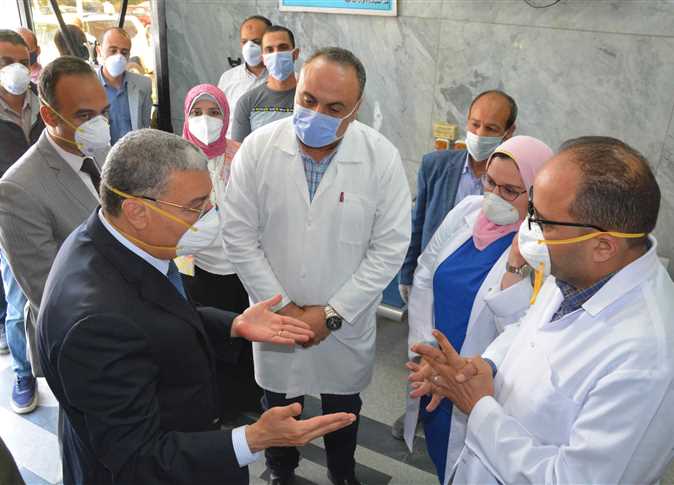
Officials at the Doctors Syndicate recommended that the Health Ministry tighten control on the activity of the multinational company Abraaj Capital, headquartered in Malta, and operate in all sectors of health.
They also stressed the need for the government and the institution of presidency to intervene and announce all the company's deals relating to laboratories, hospitals, or pharmaceutical companies.
Abraaj Capital has bought many hospitals in Egypt.
The Doctors Syndicate called in a press conference on Wednesdsay that the government and the Health Ministry tighten control on Abraaj Capital just like the CBE monitors banks, so as to allow the sale or purchase of health facilities only upon the approval of the Health Ministry and to ensure the identity of the purchasers.
It also recommended establishing rules for buying and selling health facilities to prevent the monopoly of a single party on the health sector and ensure the sector would be guided only through the state health policy.
The syndicate called on the state regulatory authorities to cooperate with it and disclose information about the activity of Abraaj Capital in the medical sector in Egypt so the syndicate can play its role in protecting patients and Egyptian doctors.
Industrial sector workers have warned of the seriousness of the acquisition of some investors to food and pharmaceutical companies.
Chairman of the Egyptian Competition Authority Mona al-Garf said that device has no legal authority to agree to any acquisitions or merger.
Ghada al-Ganzoury, under secretary of the Health Care Providers Chamber of the Federation of Industries, said that the cases of negotiation on acquisitions in the sector included six major hospitals including: Cairo, Cleopatra, the Nile, Dar al-Fouad, Badrawy and Alexandria Medical Center.
Ganzoury expressed fear of the monopoly of one or two parties over the medical sector.
Former dean of the Faculty of Economics and Political Science Alia al-Mahdy ruled out the possibility of making modifying laws to curb acquisitions.
The government directs all its efforts now to attract Arab investments and therefore can not take action that would reduce the flow of these investments, she explained.
Investments should be through the establishment of new projects, she pointed out.
Garf added that the current law gives the device no power to refuse or approve the acquisitions, contrary to other countries. The Egyptian law states that the Egyptian Competition Authority should be only notified of acquisitions.
The Egyptian market witnessed an expansion in acquisitions at many companies, especially in the food and medical sectors.



